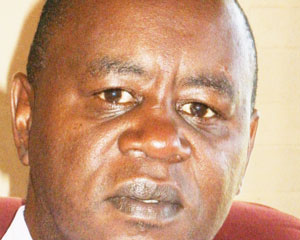
“We believe that the true unity of the people of Zimbabwe is founded on fundamental principles rather than personalities”
GUEST COLUMNIST VINCE MUSEWE
History always repeats itself and at most times, it does so in a different fashion with strange agitators and bedfellows and yet, its essence is always unchanged; it demonstrates repetitive interminable underlying themes, like waves pounding the sea shore, but we remain oblivious or choose to ignore its lessons.
I have read Masipula Sithole’s Struggles within the Struggle for the umpteenth time, and it is quite intriguing how resemblances of current events jump out at you from historical chronicles.
I occupied myself with the chapter on the Zapu-Zanu split in July 1963. I am still trying to understand why it happened and what we can learn from it, given what is currently happening within the MDC-T. I was pleasantly surprised.
From Masipula’s account, his elder brother, Ndabaningi, penned a document titled The Reasons for Our Action; a narrative that sought to justify why the late former Vice-President Joshua Nkomo, the then president of Zanu, was no longer a suitable leader.
The reasons mentioned in this document are: that Nkomo was unwilling to go to jail while his followers where being jailed in Rhodesia; that he was hiding information from the executive and deliberately misleading them; that he had become a law unto himself and dealt severely with anyone who dared to disagree with him; that he suspended executive members, these being Sithole, Leopold Takawira, Moton Malianga and Robert Mugabe in an arbitrary, unconstitutional and undemocratic manner; that he was beginning to whittle down other people’s freedom of speech and was becoming selfish and self-centred; that he took the decision to establish a government in exile in Tanganyika (now Tanzania) without consulting his executive and duped them into going there; and that he was indecisive, a vacillator, impulsive and irrational.
I quote: “While the people elect leaders, they reserve the right to criticise them and if need be, to change them. If popular criticism results in denunciation, suspension and witchhunt by the leaders, then such leaders are not worth their salt and such leaders should not handle the affairs of the party on a personal and arbitrary basis. We believe that the true unity of the people of Zimbabwe is founded on fundamental principles rather than personalities.”
- Chamisa under fire over US$120K donation
- Mavhunga puts DeMbare into Chibuku quarterfinals
- Pension funds bet on Cabora Bassa oilfields
- Councils defy govt fire tender directive
Keep Reading
The book further talks about James Chikerema, and how he tried to personalise Zapu after the split. It is perceived that he began to believe that Zapu belonged to him and the rest should follow him as the leader. This was, of course, rejected outright and his use and focus of “I James Chikerema” was cited as the most dangerous development in the struggle for Zimbabwe.
Interesting also is how Mugabe took power from Sithole in a “coup” and became acting president before a congress was held. After this was reversed by the Frontline States, the party was de facto split anyway and we saw Mugabe emerging as the sole leader, while Sithole tried in vain to regain legitimacy.
Our history is littered with unnecessary deaths and casualties that occurred because of fundamental leadership disagreements and thirst for personal power. This history continues to haunt us to this day.
Our history is now repeating itself within the MDC-T albeit with new actors, circumstances and intrigue. All the same, if we are to learn from it, we must learn some facts; that the aspiration for political power always corrupts; that there has never been a constitutional and smooth change of leadership in Zimbabwe’s political parties.
Always, the existing leaders resist change, seek absolute control and want to hold on, but ultimately they lose influence and the very leadership positions that they coveted so much.
Of course, Mugabe has cunningly avoided this at all costs by ensuring that no contestation of his leadership occurred during his reign. Any contenders or potentials are quickly dealt with accordingly, thus making it dangerous, short-sighted and suicidal for anyone to challenge him — that is the only reason why he has prevailed. His control of the armed forces has, of course, further cemented his dictatorship.
Despite our cry for democracy and constitutionalism, Zimbabwe’s political parties that claim to promote and want democracy have, in fact, never dispensed democracy within their ranks. They are true hypocrites hiding under the skirt of democratic freedom fighters.
I continue to stand by my notion that political parties are hardly democratic platforms, especially when it comes to attaining positions of influence within them. They are, therefore, unlikely to deliver the democracy we seek.
There is also this myth that political elective congresses are the ultimate exercise of democracy and, therefore, convey incontrovertible legitimacy of leadership, which is utter nonsense. We know that votes are bought, people who do not support the incumbent are purged and face all sorts of calumnies before congress, dissenters are side-lined and are never given a voice at congress and ultimately, friendly votes are pre-loaded to ensure that leaders retain their positions. Results are always a culmination of intrigue and intricate manoeuvre for power by all. It is really much ado about nothing.
How then can we ever expect organisations that do not practice democracy within to be champions of our freedom?
Let these truths force their way into the brains of the judicious and let us, therefore, all do what we must to save Zimbabwe from repeating the same mistakes that have created the very conditions which we seek to change.
The people come first!
Vince Musewe is an economist and author based in Harare. You may contact him on [email protected]











